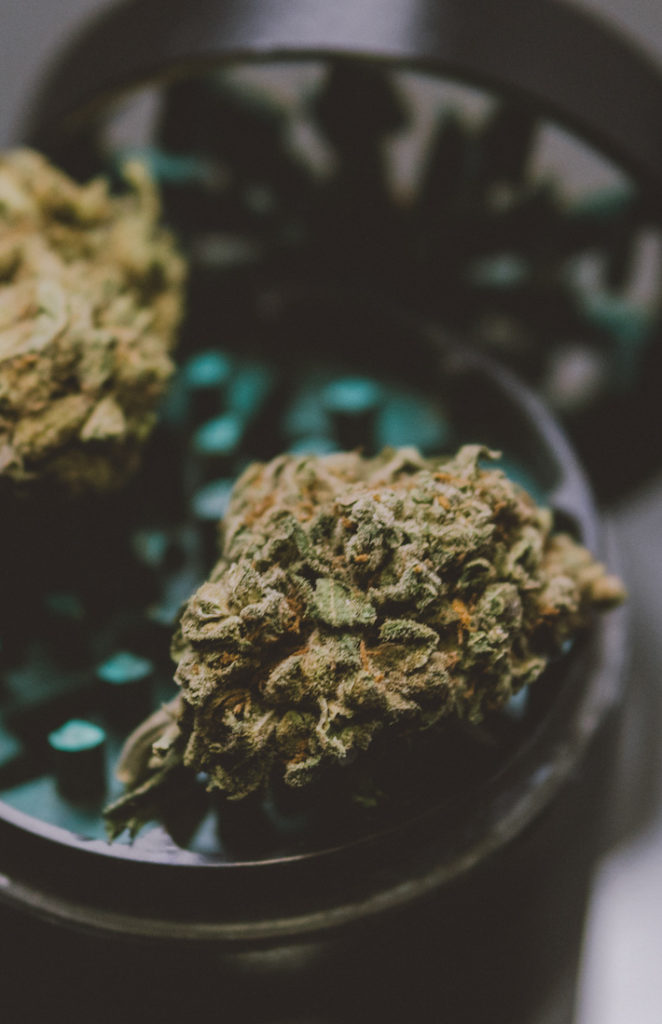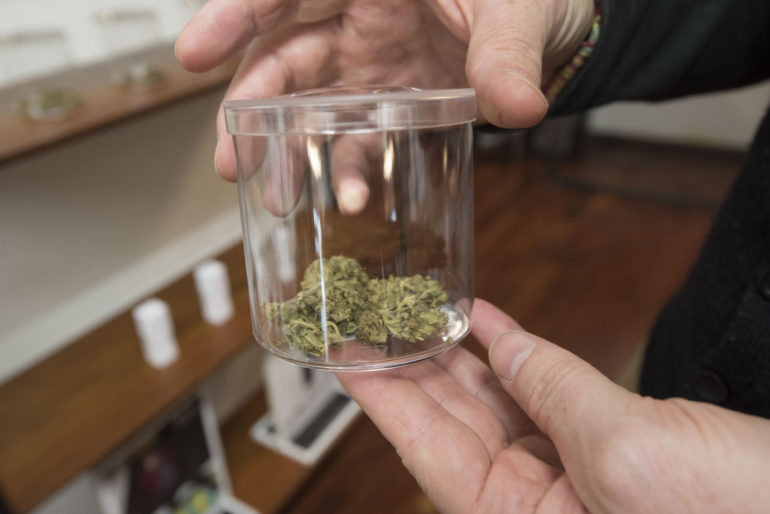Delta-8 THC is technically “legal” in Washington, but only if it’s produced in an unfeasible way and sold as part of the regulated cannabis market.
Most companies selling delta-8 THC produce it by converting CBD to delta-8 through some chemical reactions, but Washington has prevented its licensed dispensaries from selling delta-8 THC produced in this way. The loophole finally slammed shut on July 23rd, 2023, and now all THC-containing products must be sold in the cannabis program, rather than the hemp program.
Here’s what’s changing for hemp in Washington and how the law stands now.
Is Delta-8 THC Legal to Sell in Washington?
Delta-8 THC cannot be legally sold in Washington after July 23rd, 2023.
Although Washington passed Senate Bill (SB) 5276 in 2019, which defined hemp in the same way as the 2018 Federal Farm Bill, subsequent laws have changed the situation for delta-8 THC in Washington. Firstly, a policy statement from the Liquor and Cannabis Board (LCB) made it clear that:
delta-8 THC, as well as derivatives, extracts, cannabinoids, isomers, and CBD isolate from hemp or other sources that are genetically or chemically altered into compounds may not be produced or processed in LCB licensed facilities, and may not be sold in licensed marijuana retail stores.
Washington State Liquor and Cannabis Board
However, this only refers to the marijuana industry in the state, and the LCB does not oversee the hemp industry. This was reported on many sites as an overall delta-8 THC ban, but efforts taken to ban intoxicating hemp products the following year show that the situation is not so simple. Finally, in 2023, the legislature passed SB 5367, which adds to the definition of cannabis products (page 3, lines 35-39/section 2(h)(1)) that it includes (our emphasis):
any product intended to be consumed or absorbed inside the body by any means including inhalation, ingestion, or insertion, with any detectable amount of THC.
In short, this means that any delta-8 THC product – by definition – is a cannabis product, and by the policy quoted above, essentially all delta-8 THC products on the market cannot be sold as part of the regulated cannabis market. When this bill took effect – July 23rd, 2023 – delta-8 THC was effectively totally banned in Washington.
RELATED: Where Is Delta-8 THC Legal? A State-by-State Map
Delta-8 THC Legislation Timeline for Washington
Washington legalized recreational marijuana in 2012, but the hemp industry and delta-8 THC didn’t really take off until 2019. Hemp-derived delta-8 THC cannot be sold in any store in Washington from July 23rd.
Unlike many states, Washington had legal marijuana long before any intoxicating hemp products like delta-8 THC hit the market. The state’s hemp industry really got started with the passage of SB 5276 in 2019, which followed the blueprint laid down by the 2018 federal Farm Bill and essentially legalized delta-8 THC in the process.
However, the proliferation of hemp-derived cannabinoids and especially people using hemp ingredients in the regulated cannabis market led the Washington State LCB to release a policy statement on April 28th, 2021. This policy statement addressed the regulated cannabis industry, under Initiative 502 (I-502), and stated that the only way delta-8 THC could be included in an I-502 system product would be if it was produced – naturally, in a cannabis plant – by someone licensed under that section. CBD from hemp is the only thing that can be added, as clarified by further statements.
On May 9th, 2023, Governor Jay Inslee signed SB 5367 into law (video, SB 5367 at 31:30). This bill makes it clear that any product containing a detectable amount of THC is a cannabis product, and so would be regulated by the LCB. However, as the above statement makes clear, the LCB does not allow most (if not all) commercial delta-8 THC products because they have been produced synthetically.
Can Delta-8 THC Be Added to Food?
Delta-8 THC can be added to food under Washington law, but only if a delta-8 THC product is sold in the regulated marijuana system from July 23rd, 2023 onwards.
While federal law doesn’t permit the addition of delta-8 THC or CBD to food, SB 5276 allowed hemp edibles (section 4(5)/page 4, lines 17 to 23), and cannabis edibles are part of the I-502 system. This means that until July 23rd, delta-8 THC was still permitted in edible products under the hemp program. However, after July 23rd, while they are technically allowed in the regulated cannabis market, they would have to use naturally-produced delta-8 THC and wouldn’t likely be commercially viable.
Can You Buy Delta-8 THC in Washington?
Prior to July 23rd, 2023, you could buy delta-8 THC products in Washington as part of the hemp program. However, after this date it is not legally available unless it’s sourced naturally, which is unlikely to be a viable method.
Delta-8 Alternatives You Can Legally Buy in Washington
While marijuana is legal in Washington, as of July 23rd, the regulated marijuana system under I-502 is the only way to legally obtain any intoxicating cannabinoid product. In short, the best delta-8 THC replacement you can buy is a suitably milder strain of actual cannabis.
Age Restrictions
If any delta-8 THC products were allowed to be sold, they would be in the regulated cannabis market with a minimum age of 21 for purchase.
Public Consumption Laws

You can’t consume delta-8 THC in public in Washington, because it is considered to be cannabis and cannabis can’t be used in view of the general public.
I-502 states (section 21/PDF page 28) that it is a class 3 civil infraction to open or consume cannabis in view of the general public. Since delta-8 THC products – however obtained – are considered cannabis, they fall under the law and can’t be consumed in public.
Can You Drive Under the Influence of Delta-8 THC in Washington?
No, you can’t drive under the influence of cannabis in Washington, and delta-8 THC is both intoxicating and considered to be “cannabis” in the state.
Washington’s driving under the influence law references cannabis specifically, setting a maximum blood concentration of 5 ng/ml of THC within 2 hours of driving. Delta-8 THC shows up just like delta-9 on drug tests – they aren’t specific enough to differentiate and it doesn’t matter in the eyes of the law anyway – so driving under the influence of delta-8 THC is illegal.
Punishment in the first instance includes between 1 and 364 days in jail and a fine of between $350 and $5,000.
RELATED: Can Delta-8 THC Make You Fail a Drug Test?
Can You Travel to Washington With Delta-8?
No. Delta-8 THC is considered cannabis in Washington, and you can’t travel between state lines with cannabis.
Closing Thoughts: The Future for Delta-8 in Washington
Washington lawmakers have finally taken control of the delta-8 THC industry through SB 5367, and it’s unlikely that further changes will be needed in the near future. The only open question is whether any delta-8 THC products will be produced for the legal cannabis market, but given the prohibition on the most cost-effective way to produce it, this is pretty unlikely.
The good news is that Washington has a thriving legal weed market, with products more comprehensively tested and monitored than they would be in the hemp industry.
